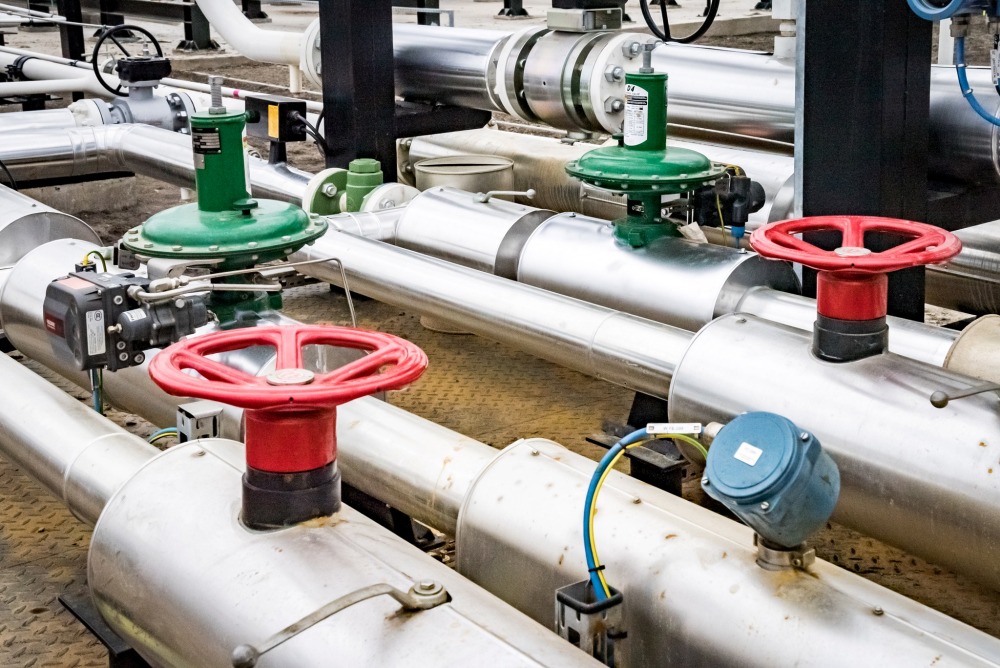
The Hungarian Prime Minister and the President received Bulgarian President Rumen Radev on Saturday.Continue reading

In late 2023, news broke that the Ukrainian state gas company Naftogaz does not intend to resume transit of Russian gas to Europe after their contract expires at the end of 2024. The decision puts the Hungarian, Slovak, Czech, and Austrian markets in a difficult situation, as currently, around 42 million cubic meters of gas per day arrive via the Ukrainian routes.
As ma7.sk reports, now, the spokesman of the Slovak gas transmission company Eustream said that “it is extremely important to maintain gas transit through Ukraine because although there are alternatives, using them would lead to a significant increase in consumer prices.”
Although Slovakia has a two-way (gas) connection with neighboring countries thanks to investments completed on time, alternative sources and LNG (liquefied natural gas) are more expensive to supply and may be difficult to transport in some countries due to narrow pipeline networks, Pavol Kubík pointed out. He highlighted:
all these factors would lead to a non-negligible increase in the price of gas for consumers.”
The Eustream spokesperson noted that there is a real risk that gas transit to Slovakia via Ukraine will stop from the beginning of next year, but maintaining this traditional transit is of utmost importance for consumers in Slovakia and other consumers in the region, such as Hungary. According to him, there are possibilities to maintain gas transit via Ukraine, but they have not yet been agreed between the interested parties.
He also added that gas transit from Ukraine to Slovakia via the entry point at Veľké Kapušany (Nagykapos) is currently taking place in line with orders, but that the volume of these orders is significantly lower than in the pre-crisis period in Ukraine.

Photo via Pixabay
The significant price increase would allegedly also affect Hungary, purchasing 4.5 billion cubic meters of Russian gas a year,
which – given that the Nord Stream pipelines are still being blown up by unknown actors – can be supplied mainly via the TurkStream, Portfolio points out.
Earlier in March, the press services of the two Hungarian companies involved in the case, the system operator FGSZ and MVM CEEnergy, which has signed a long-term Hungarian-Russian gas supply contract, have given a statement to the Russian news agency TASS. They said that it would be possible to find alternative ways of transporting Russian gas, via other routes, if no agreement between the Russians and Ukrainians is reached by the end of the year. The issue concerns the two Hungarian companies in that the smaller leg of the long-term Russian agreement, 1 billion cubic meters per year, entering the country via the Ukrainian transit via Slovakia and Austria at the Mosonmagyaróvár (northwestern Hungary) transfer point. The larger leg, 3.5 billion cubic meters per year, enters the country via the TurkStream via Bulgaria and Serbia at Kiskundorozsma (part of Szeged, southern Hungary).
The press service of the FGSZ has indicated that the technical throughput capacity of the Kiskundorozsma-2 crossing point on the Serbian-Hungarian border is 8.4 billion cubic meters per year. This is the maximum volume that can be transported to Hungary (via this route). At present, this point is operating at high capacity, but the volume of deliveries can be increased in line with technical capacity if there is sufficient interest from traders.
In other words:
the total annual Russian-Hungarian contracted volume of 4.5 billion cubic meters could be transported through this crossing point,
there is no technical obstacle (the annual capacity of the TurkStream itself is 15.75 billion cubic meters), it is just up to the traders who book the crossing point to use it.
Via ma7.sk, Portfolio; Featured image via Facebook/Energiaügyi Minisztérium